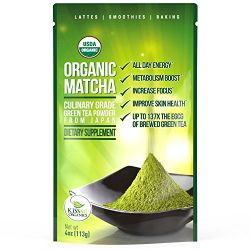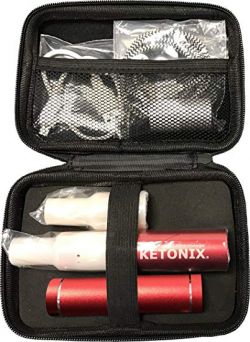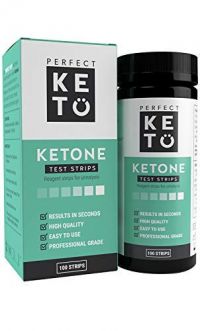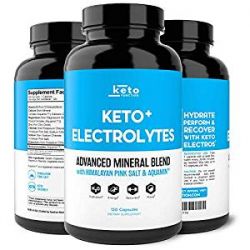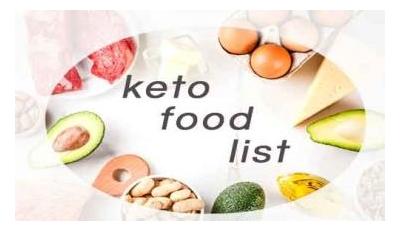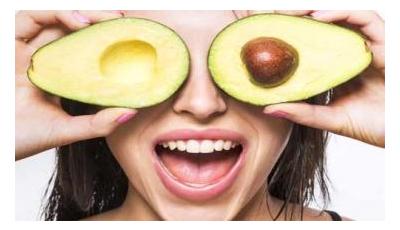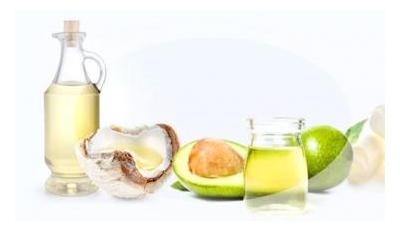The ketogenic (keto) diet has been gaining popularity as a means of short-term weight loss. It is important that you begin the diet correctly to quickly enter a state of ketosis and maintain adequate nutrition. Here is an overview of how to get started on a keto diet and what steps to take while you are on it.
”Present study confirms that it is safe to use a ketogenic diet for a longer period of time ;(NIH.gov)
”Present study confirms that it is safe to use a ketogenic diet for a longer period of time ;(NIH.gov)

Keto Basics
At the core of a ketogenic diet is a metabolic state called ketosis. When your body is in ketosis, it burns fat instead of glucose for energy. By eliminating most carbohydrates from your diet, your cells can no longer rely on a supply of glucose, broken down from carbs. Instead, your cells must break down fats and other lipids for energy, tapping into your body’s fat reserves to supply fuel. These stored fats are converted into ketone bodies, which travel in your bloodstream to your cells for use as energy. This is what causes the rapid weight loss that is the goal for most people starting keto for non-medical reasons.1, 2

Contraindications for a Keto Diet
Not everybody should try a keto diet. People who have liver, gallbladder, or kidney problems should not try keto because the high amounts of fat and protein could overload these organs. Those who are taking medications for blood sugar or blood pressure are also advised against trying a keto diet because it can affect these levels. Type I diabetics in particular should not try a keto diet because diabetic ketoacidosis is a serious possible complication.3, 4
Not everybody should try a keto diet. People who have liver, gallbladder, or kidney problems should not try keto because the high amounts of fat and protein could overload these organs. Those who are taking medications for blood sugar or blood pressure are also advised against trying a keto diet because it can affect these levels. Type I diabetics in particular should not try a keto diet because diabetic ketoacidosis is a serious possible complication.3, 4

Foods to Eat and Avoid
The keto diet emphasizes lipid consumption, with a moderate amount of protein and a highly restricted amount of carbs. Net carb intake should be between 20 to 50g daily.5 Carbs from dietary fiber does not count toward your daily net carb intake because these feed your gut bacteria, not you directly.
High-fat ingredients such as cream, butter, and oils are ideal. Meat, seafood, nuts, eggs, and cheese are great choices. You can also eat low-carb vegetables, those that grow above the ground, especially green leafy vegetables like kale and spinach. A small amount of berries, which are rich in fiber and antioxidants, are okay, as well as fat-rich avocadoes.6
Foods to avoid are any that are moderate to high in carb content. These include grains, most fruits, and root vegetables. Junk foods, sodas, and other foods with added sugars and starches should also be avoided. However, artificial sweeteners are fine.6

Managing Keto Flu
For the first 3-7 days after beginning a keto diet, your brain and other organs have to quickly adjust to the lack of glucose in your bloodstream. You may experience a number of symptoms during this transition period, collectively known as “keto flu.” These include headache, nausea, tiredness, irritability, muscle tiredness and cramps, and trouble concentrating.7
Some of these symptoms come from a loss of electrolytes. Drinking lots of water, especially with a bit of salt added, can help relieve keto flu symptoms. Getting plenty of sleep and avoiding strenuous exercise can also be helpful.7
For the first 3-7 days after beginning a keto diet, your brain and other organs have to quickly adjust to the lack of glucose in your bloodstream. You may experience a number of symptoms during this transition period, collectively known as “keto flu.” These include headache, nausea, tiredness, irritability, muscle tiredness and cramps, and trouble concentrating.7
Some of these symptoms come from a loss of electrolytes. Drinking lots of water, especially with a bit of salt added, can help relieve keto flu symptoms. Getting plenty of sleep and avoiding strenuous exercise can also be helpful.7

Checking for Ketosis
As you continue your diet, you may wish to check that your body is remaining in ketosis. There are a few over-the-counter tests that can check for the number of ketone bodies in your system.
Acetone breath test: A byproduct of ketone metabolism is acetone, which can cause the bad breath associated with the keto diet. New devices can test your breath for acetone, which is now the most accurate ketosis test available.8
Blood ketone test:Like blood sugar tests, these portable devices test the level of ketones in a drop of blood from a finger prick. These tests are also fairly accurate and reliable.9
Urine ketone test:Urine dipstick tests are not as accurate as other ketone tests, but are cheap, quick, non-invasive, and will do the trick in a pinch.10
As you continue your diet, you may wish to check that your body is remaining in ketosis. There are a few over-the-counter tests that can check for the number of ketone bodies in your system.
Acetone breath test: A byproduct of ketone metabolism is acetone, which can cause the bad breath associated with the keto diet. New devices can test your breath for acetone, which is now the most accurate ketosis test available.8
Blood ketone test:Like blood sugar tests, these portable devices test the level of ketones in a drop of blood from a finger prick. These tests are also fairly accurate and reliable.9
Urine ketone test:Urine dipstick tests are not as accurate as other ketone tests, but are cheap, quick, non-invasive, and will do the trick in a pinch.10

Getting Enough Nutrition
Because you will be eating very few vegetables, fruits, and grains, you may experience nutritional deficiencies on a keto diet. Supplements are a good idea to make sure you are getting enough vitamins, minerals, and other nutrients while dieting. B vitamins and vitamin D, along with the minerals calcium, magnesium, and selenium, are often low in keto dieters11 so a multivitamin that includes these would be beneficial. Also, supplementing with dietary fiber (normally obtained from fruits, vegetables, and whole grains) will be helpful to keep your gut healthy and relieve digestive complications like constipation.12
Because you will be eating very few vegetables, fruits, and grains, you may experience nutritional deficiencies on a keto diet. Supplements are a good idea to make sure you are getting enough vitamins, minerals, and other nutrients while dieting. B vitamins and vitamin D, along with the minerals calcium, magnesium, and selenium, are often low in keto dieters11 so a multivitamin that includes these would be beneficial. Also, supplementing with dietary fiber (normally obtained from fruits, vegetables, and whole grains) will be helpful to keep your gut healthy and relieve digestive complications like constipation.12
[1] GF Cahill, Jr., TT Aoki, and NB Ruderman. 1973. "Ketosis." Trans Am Clin Climatol Assoc. 84184-202. https://www.ncbi.nlm.nih.gov/pmc/articles/PMC2441301/
[2] LB Gano, M Patel, and JM Rho. 2014. "Ketogenic diets, mitochondria, and neurological diseases." J Lipid Res. 55(11):2211-28. http://www.jlr.org/content/55/11/2211.long
[3] 2018. Should you try the keto diet? Harvard Health Letter. Harvard Medical School. https://www.health.harvard.edu/staying-healthy/should-you-try-the-keto-diet
[4] L Cenci, A Paoli, HR Omar, P Dalvi, EM Camporesi, D Mangar, S Quartesan, A Fiorito, and G Bosco. 2018. "Internist, anesthesiologist and surgeon use of ketogenic diet." Minerva Gastroenterol Dietol. 64(1):84-93. https://www.minervamedica.it/en/journals/gastroenterologica-dietologica/article.php?cod=R08Y2018N01A0084
[5] F Brouns. 2018. "Overweight and diabetes prevention: is a low-carbohydrate-high-fat diet recommendable?" Eur J Nutr. 57(4):1301-1312. https://www.ncbi.nlm.nih.gov/pmc/articles/PMC5959976/
[6] MC Staff. 2018. "The truth behind the most popular diet trends of the moment."Healthy Lifestyle: Weight Loss. Mayo Foundation for Medical Education and Research (MFMER). https://www.mayoclinic.org/healthy-lifestyle/weight-loss/in-depth/the-truth-behind-the-most-popular-diet-trends-of-the-moment/art-20390062.
[7] K Kirkpatrick. 2018. "What 30 Days on the Keto Diet Feels Like."Health Essentials. Cleveland Clinic. https://health.clevelandclinic.org/weight-loss-what-30-days-on-the-keto-diet-felt-like/.
[8] AT Guntner, JF Kompalla, H Landis, SJ Theodore, B Geidl, NA Sievi, M Kohler, SE Pratsinis, and PA Gerber. 2018. "Guiding Ketogenic Diet with Breath Acetone Sensors." Sensors (Basel). 18(11):
[9] JP Lopez Siguero, JA Moreno Molina, MV Borras Perez, JL Pinzon Martin, JI Brea Molina, A del Pino de la Fuente, and M Parramon Pons. 2007. "[Blood glucose and ketone monitoring in type 1 diabetic patients in the controlled environment of a summer camp]." An Pediatr (Barc). 66(4):387-92. https://www.ncbi.nlm.nih.gov/pubmed/17430716
[10] B Kuru, M Sever, E Aksay, T Dogan, N Yalcin, ES Eren, and F Ustuner. 2014. "Comparing Finger-stick beta-Hydroxybutyrate with Dipstick Urine Tests in the Detection of Ketone Bodies." Turk J Emerg Med. 14(2):47-52. https://www.ncbi.nlm.nih.gov/pubmed/27331169
[11] EH Kossoff, BA Zupec-Kania, S Auvin, KR Ballaban-Gil, AG Christina Bergqvist, R Blackford, JR Buchhalter, RH Caraballo, JH Cross, MG Dahlin, EJ Donner, O Guzel, RS Jehle, J Klepper, HC Kang, DA Lambrechts, YMC Liu, JK Nathan, DR Nordli, Jr., HH Pfeifer, JM Rho, IE Scheffer, S Sharma, CE Stafstrom, EA Thiele, Z Turner, MM Vaccarezza, E van der Louw, P Veggiotti, JW Wheless, and EC Wirrell. 2018. "Optimal clinical management of children receiving dietary therapies for epilepsy: Updated recommendations of the International Ketogenic Diet Study Group." Epilepsia Open. 3(2):175-192. https://www.ncbi.nlm.nih.gov/pmc/articles/PMC5983110/
[12] F Cavaleri and E Bashar. 2018. "Potential Synergies of β-Hydroxybutyrate and Butyrate on the Modulation of Metabolism, Inflammation, Cognition, and General Health." Journal of nutrition and metabolism. 20187195760-7195760. https://www.ncbi.nlm.nih.gov/pmc/PMC5902005/
-
Keto Electrolytes
By Dr. KarenDecember 20, 2021 -
Supplements for Ketogenic Diet
By Dr. KarenAugust 14, 2022 -
How to Know if You are in Ketosis
By Dr. AnnaDecember 20, 2021 -
Coconut Oil vs Olive Oil vs Avocado Oil
By Dr. AnnaAugust 14, 2022 -
Keto Diet Food List
By Dr. AnnaAugust 14, 2022 -
How Long Does it Take to Get Into Ketosis
By Dr. KarenDecember 21, 2021 -
Vegetarian Keto
By Dr. KarenAugust 14, 2022
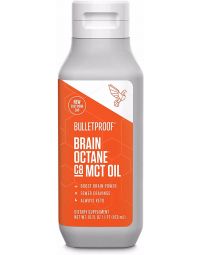
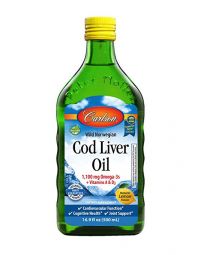
Search the blog
Article Categories
- All Articles (95)
- Rating Charts (1)
- Beauty & Skincare (17)
- FAQ (0)
- Hair Care (9)
- Health & Wellness (12)
- Anti-Aging (4)
- Kid's Health (0)
- Makeup (2)
- Men's Health (2)
- Oral Care (3)
- Sunscreen (7)
- Skin Tools & Treatments (10)
- Supplements (26)
- Videos (0)

